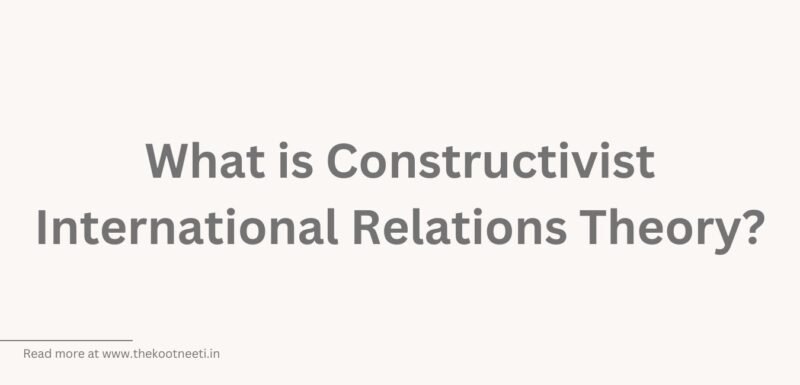What is Constructivist International Relations Theory?

Constructivist international relations theory is a perspective that emphasizes the role of ideas, beliefs, and norms in shaping international relations. Constructivist theory suggests that international relations are not simply the result of material power or national interest, but are also shaped by the ideas and beliefs that states and other actors hold about the world and their place in it.
According to constructivist theory, the way that states and other actors understand and interpret their environment plays a crucial role in shaping their behaviour. For example, a state may decide to go to war with another state because it believes that it is justified in doing so, rather than simply because it has the military power to do so.
The constructivist theory also emphasizes the role of norms and values in shaping international relations. Norms are shared expectations about how states and other actors should behave, and they can influence the behaviour of states even when they do not have a formal legal or institutional basis.
The constructivist theory has had a significant impact on the study of international relations and has helped to broaden the focus beyond traditional material factors such as power and interest. However, it has also been criticized for its emphasis on ideas and beliefs, as these can be difficult to measure and may be subject to change.


















